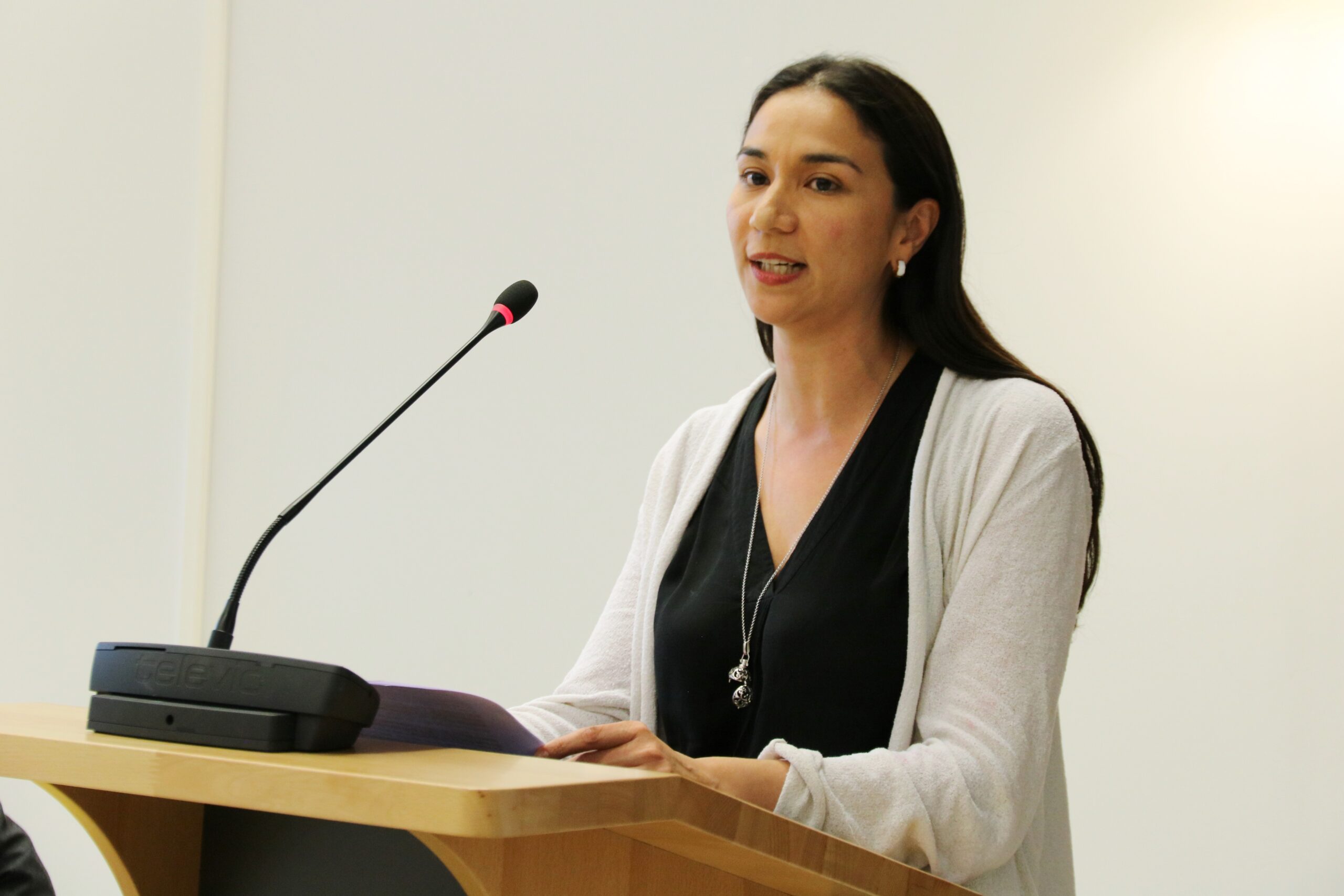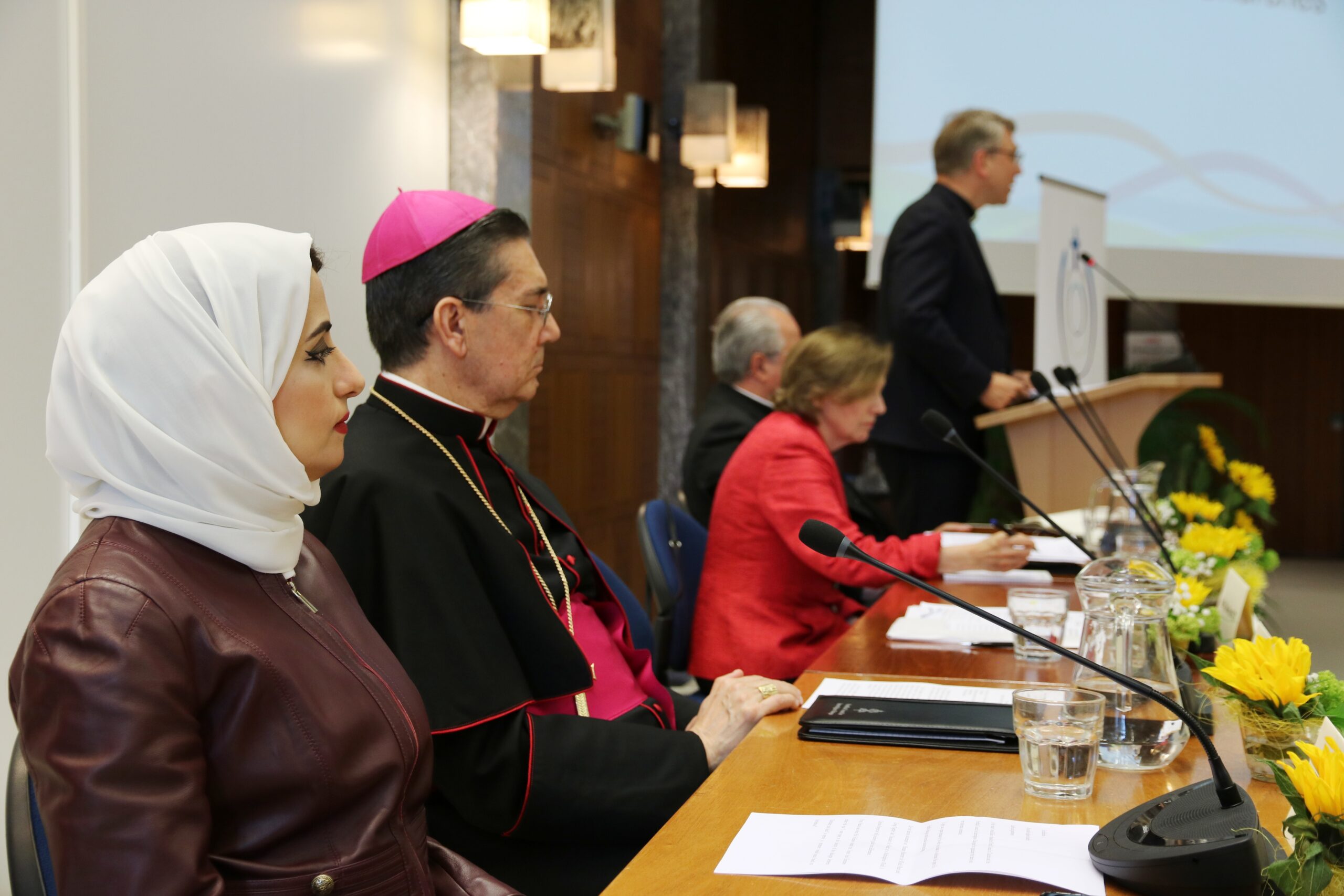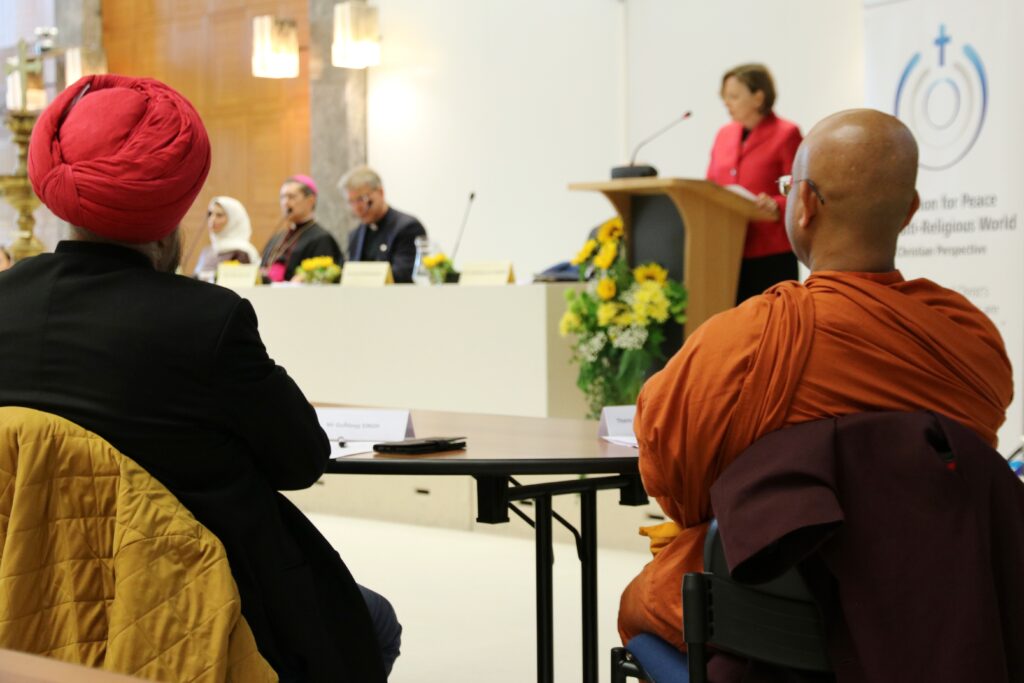
Several religious leaders and representatives from Permanent Missions to the United Nations Office in Geneva and faith-inspired organizations gathered at a conference titled Promoting Peace Together on May 21, 2019, to reflect on the importance of education for peace and interfaith dialogue.
“We have gathered here inspired by a common vision: to promote peace together,” said Ms. Anne Glynn-Mackoul, member of the Executive Committee of the World Council of Churches (WCC), during her welcoming address. “Today we will explore together two documents which affirm, each with compelling fervor, the possibility of peace,” she added.
At the Conference, participants focused on two historic documents related to peace-making. The first, “Human Fraternity for World Peace and Living Together,” was jointly signed by Pope Francis and the Grand Imam of Al-Azhar in Abu Dhabi in February 2019. The second, “Education for Peace in a Multi-Religious World: A Christian Perspective,” jointly prepared by the Pontifical Council for Interreligious Dialogue (PCID) and the WCC, was officially launched at the Conference. The document aims to make a constructive contribution to peace-making and explores the vital role that education can play in cultivating a culture of peace.
In his opening remarks, Rev. Dr. Olav Fykse Tveit, Secretary General of the WCC, addressed the attendants as brothers and sisters. “It is a simple greeting but, in this greeting, there is a beautiful and radical truth: a truth that is both liberating and very demanding,” he said. “As we celebrate in this ecumenical center, we do this as members of the one human family. As human beings, we are related and God calls us to live together as a family, which means we also have to live together properly in justice and in peace.”
Ms. Maria Lucia Uribe, Director of Arigatou International – Geneva, was invited to speak on the topic of education for non-violence and inclusion. Ms. Uribe addressed education as an ethical demand and obligation. She highlighted the need for education to foster interconnectedness, critical consciousness and freedom, as key aspects for the spiritual development of children and youth, and to cultivate genuine interfaith learning and solidarity, not only in schools but also in our own places of worship.
“Education nowadays needs to be conceived as an ethical demand and foster in youth and in children the awareness of the ethical dimension of our interactions and relations with others,” said Ms. Uribe during her intervention.
We thank the WWC and the PCID for this kind invitation, and for their work in strengthening ecumenical relationships through the fostering of interreligious dialogue.
The newly released document, “Education for Peace in a Multi-Religious World: A Christian Perspective” can be downloaded here, and the live streaming video of the Conference is available here.
